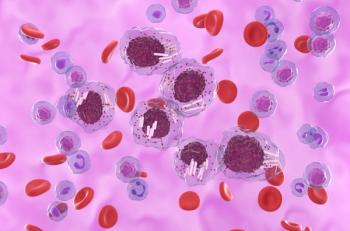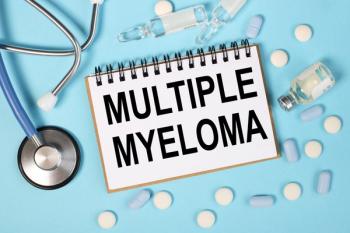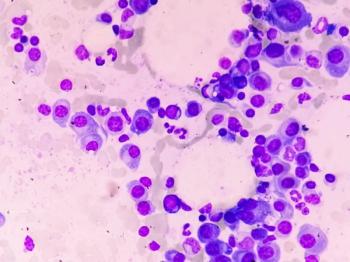
This issue of Pharmacy Practice in Focus: Oncology features the publication's first manuscript to undergo peer review.

This issue of Pharmacy Practice in Focus: Oncology features the publication's first manuscript to undergo peer review.

"Pharmacy Practice in Focus: Oncology" welcomes the launch of the peer-review process.

Patients readily accepted physical interventions and referrals to oncology clinical pharmacy practitioners.

In addition to managing adverse effects and educating both patients and providers, pharmacists help patients get access to much-needed treatments.

Bevacizumab is a recombinant humanized G1 monoclonal anti-vascular endothelial growth factor antibody that is used in combination with chemotherapy to treat solid tumors.

The FDA assigned a Prescription Drug User Fee Act (PDUFA) goal date of October 8, 2024.

Treatment decisions should depend on the patient, their disease, and their disease progression.

In November 2023, the FDA announced an investigation of CAR T-cell therapy based on several reported secondary T-cell malignancies.

Approximately 41% of enrolled patients responded to NX-2127, and the BTK degrader overcame resistance to nearly all BTK mutations that were identified to cause resistance.

According to the authors, the test has promise in guiding treatment but needs further refining to obtain information beyond molecular subtyping.

The findings suggest that greater adherence to the WCRF/AICR Cancer Prevention Recommendations could greatly reduce the risk of all cancers combined, along with 14 others.

Survival rates were similar between non-Hispanic African American and non-Hispanic White patients who received treatment, indicating a need to address barriers to multiple myeloma treatment and racial disparities.

Daratumumab and hyaluronidase-fihj in combination with other therapies was previously approved by the FDA in May 2020 for 8 indications in multiple myeloma.

Afami-cel had engineered t-cell receptor T-cells target MAGE-A4+ tumors, which are highly expressed in synovial sarcoma with HLA-A*02.

The late-breaking data at the 2024 American Society of Clinical Oncology Genitourinary Cancers Symposium included the results of KEYNOTE-123 for locally advanced resectable urothelial carcinoma.

An integrated strategy can simplify the development of antibody-drug conjugates.

Less manufacturing time could be the difference between a patient receiving this life-saving therapy vs not.

Decentralized clinical trials are emerging as a method by which to address gender bias in clinical research.

Compared to embolization alone, the systemic treatment combination nearly doubled progression-free survival among patients with unresectable liver cancer.

The immune checkpoint inhibitor increased inflammation within the tumor, which may be linked to better response to nivolumab treatment.

pCR rates improve regardless of whether patients received full chemotherapy doses.

Providers can consider the patient’s medication history, comorbidities, or migraine type to help choose a first line treatment or refer the patient to specialized care.

Trastuzumab deruxtecan and elacestrant represent important new treatment options.

Radioligands may be able to deliver radiation to advanced tumor cells anywhere in the body.

No established standard of care currently exists after spread to the lymph nodes.

Please take 10 minutes to complete the 2024 Burnout and Mental Health Survey.

Compared to TACE alone, durvalumab plus TACE and bevacizumab reduced the risk of disease progression or death by 23%; however, further research is needed to assess OS.

Older patients’ underrepresentation in clinical trials leaves a gap in data regarding appropriate treatment.

Scott Soefje, PharmD, MBA, BCOP, FCCP, FHOPA, discusses the multifaceted role of oncology pharmacists in diverse care settings, emphasizing their collaboration in treatment decisions and adaption in the evolving landscape of cancer care.

The combination resulted in numerically longer OS compared with an NSAI alone.